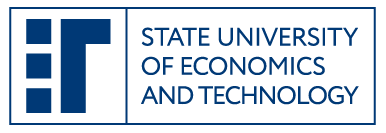Publication Ethics
The Editors of "Economics and technical engineering" journal supports a certain level of requirements during the selection of articles submitted for publication. These standards are defined in scientific direction of Journal, which is defined by standards of quality scientific papers accepted in the scientific community.
The Editors present a list of ethical norms according to a profile of the Journal, that should guide a person involved in the publication of research results. We suggest the rules and regulations developed and guided by the recommendations of Committee on Publication Ethics.
Ethical obligations of the Journal Editorial Board:
- Editorial Board are responsible for everything published in the Journal, that’s why all materials submitted for publication are carefully selected and reviewed. Editorial Board reserve the right to reject an article or return it for revision. The author, in turn, is obliged to finish the article according to comments of reviewers and editorial board;
- Editorial Board / Council has to make fair and impartial decisions, independent of commercial or other interests and ensure a fair process of review;
- Editorial Board / Council are authorized to reject a manuscript without review if it is considered not to match the Journals’ policy;
- Editorial Board / Council are authorized to remove even already published article under finding out the violation of someone's rights or accepted norms of scientific ethics. On the fact of removing the article editors informs the author, who provided the article and the organization where the work was performed;
- Editorial Board / Council allow spreading of any Journal articles or extracts from them in electronic networks, but references to the source is required;
- According to international law in part of compliance of authors rights about informational resources, Journal materials cannot be reproduced in whole or in part in any form (electronic or printed) without the prior written consent of the authors and editors of the Journal. In fact of using the published material in the context of other documents is necessary to provide reference to the source.
Ethical obligations of authors:
- Research, published in the Journal should be conducted in accordance with applicable law and ethical standards. It is necessary to indicate any dangerous implications and risks related to a new study;
- Authors should present their results clearly and unambiguously, so that their findings can be confirmed by other scientists, without forgery or improper manipulation of data;
- Authors of articles are responsible for the context of articles and for the fact of their publication;
- Authors must follow the requirements of publication. It is not acceptable to represent plagiarism as original work for publication and previously published articles;
- Funding sources and relevant conflicts of interest must be disclosed without fail. Authors should ensure the absence of contractual relationship or ownership considerations that could affect on publication of information contained in the manuscript;
- Authors should clearly indicate the sources of all quoted or represented information and have to make appropriate reference to the literature used in work. Editorial Board / Council are authorized to refuse to publish articles under non-specified requirements.
Ethical obligations of reviewers:
- Every scientist who submits an article for publication, shall perform a definite part of work in review;
- All articles submitted for publication must be reviewed by the supervisor of the author(s), academic institution, where the work was carried and by members of the editorial board / council of Journal. If the editorial board / council is not confident in the possibility of publishing this article, it reserves the right to appoint an independent reviewer;
- All members of the editorial board / council are reviewers;
- Reviewer shall objectively evaluate the quality of the manuscript, presented experimental and theoretical work, its interpretation and presentation, and also consider the extent to which work meets academic standards and requirements for its design. Reviewer must respect the intellectual independence of authors.








